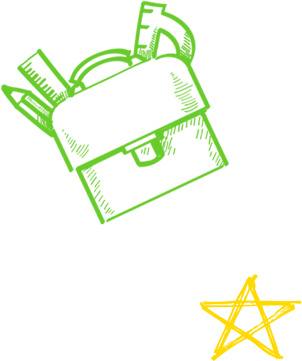
Toddler Program
Our toddler program is designed to develop and nurture young children's interests and curiosity in a welcoming and soothing environment. Our classroom is arranged around learning centers with materials specially designed to stimulate the children's interest and improve their cognitive and motor abilities and social and emotional skills.
Our learning centers are Practical Life, Sensorial, Language, Mathematics, Science, and Art. We are integrating STEM into our Montessori curriculum because we believe that being in contact with science early on helps build our children's logical and critical minds and problem-solving skills.
As part of our daily routine, the children have outside play time when they run, climb, jump, play with our sandbox, etc. These activities develop the child's motor skills and social interaction.
Toddler acceptance age is from 15 months through 3 years old.
Twice per week, our children have Spanish class, where they learn songs and basic Spanish words like numbers, colors, and names of animals. Children, who have been introduced to a second language at an early age, tend to become fluent in that language later in life, enhancing creativity, mental flexibility, and memory.
We also offer weekly music classes, where children can play different instruments and experiment with various rhythms, pitches, and tempos. They also learn songs, dance, and have lots of fun.

Toddler Learning Stations
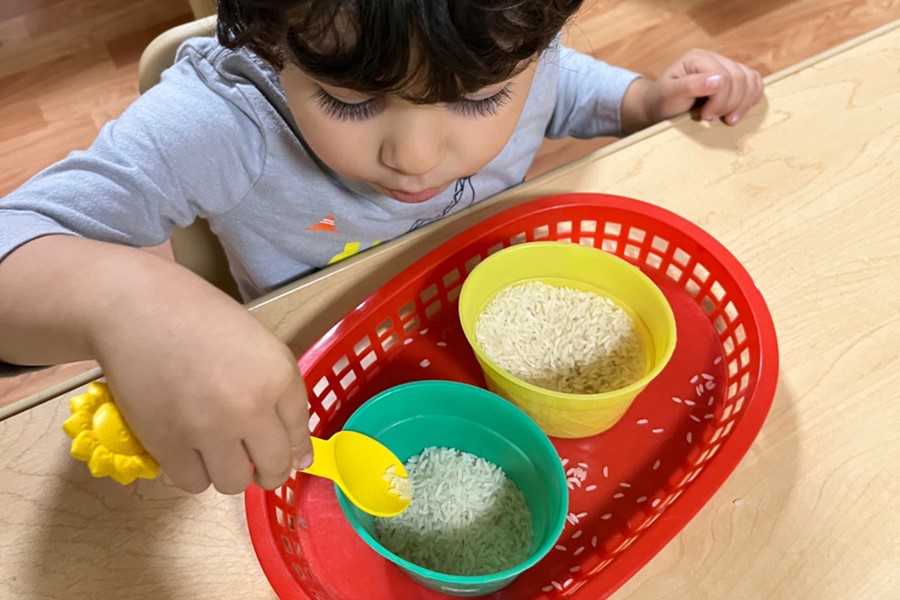
Practical Life
The practical Life area is an essential part of a Montessori classroom because it allows the child to develop concentration, coordination, a sense of order, and independence. Practical life focuses mainly on Grace and Courtesy, care of self, care of the environment, perceptual motor skills, and visual motor skills.
Examples of Practical Life activities are: Washing hands, wiping up spills, rolling and unrolling the work mat, transferring objects from one container to another using spoons and small tongs, cutting soft food into pieces, and pouring liquids from one container to another.
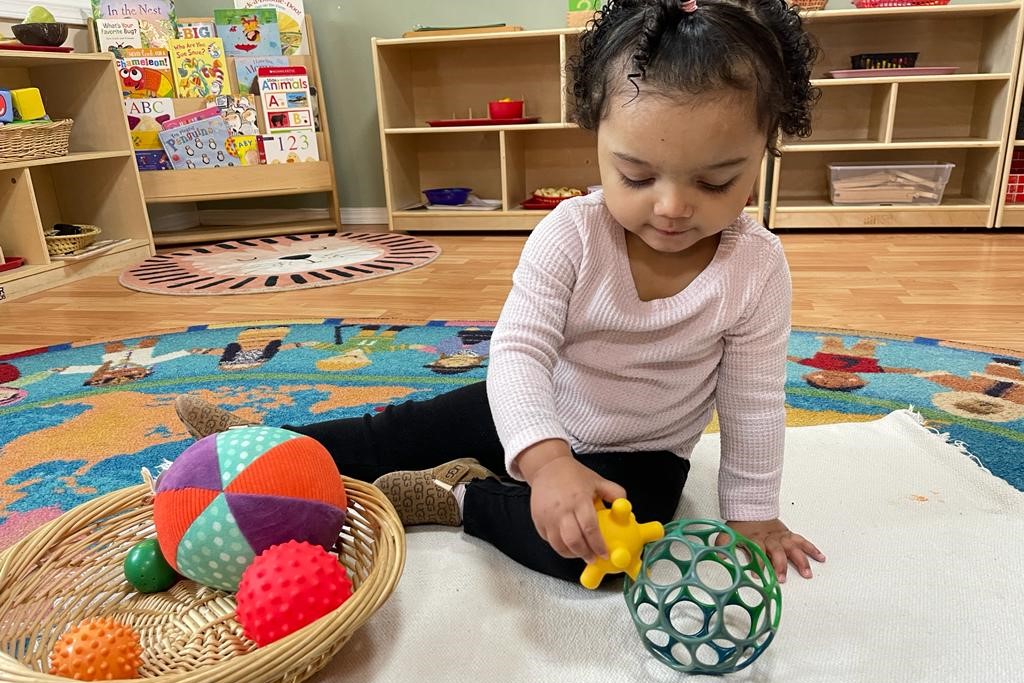
Sensorial
According to Maria Montessori (creator of the Montessori method of Education), children from birth to 6 years of age are in the "Absorbent Mind" stage. This means that children learn effortlessly from the world around them. Children learn through their senses, and the Sensory materials are designed to train and refine the senses and place an order on the sensory impressions the child is already receiving.
The Sensorial materials help develop logical and reasoning skills as well as creativity.
Examples of Sensorial activities are: Identifying colors, sorting objects by colors, arranging objects according to size, manipulating geometrical solids, identifying soft and loud sounds, identifying smells, and identifying and feeling different textures.
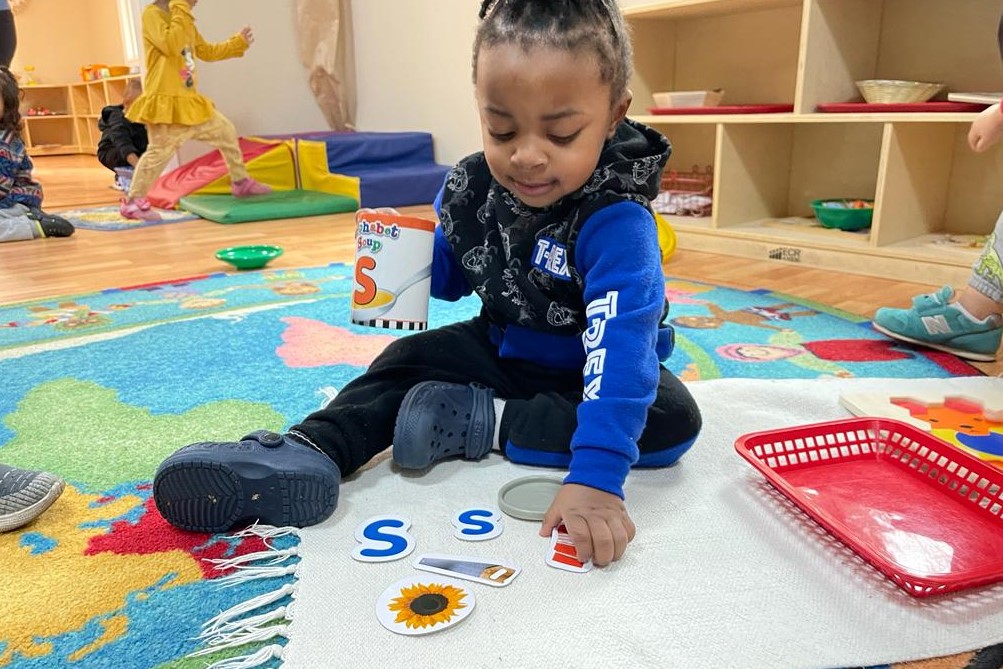
Language
Children at 12 months of age can normally say 2 or 3 simple words like ma-ma or da-da and start making sounds like babbling, trying to imitate their parent's or caregiver's voices and sounds. Since then, the language learning process has accelerated rapidly, so the year between 12 and 24 months becomes the most exciting year in language development. By age 3, a child can communicate using a combination of words creating short and simple sentences and can follow simple directions. At Prime Time Montessori, we are committed to assisting your child in every stage of development, which is why our language learning center is specially designed to help the children develop their language skills.
Language activities include reading books, story times, circle time, singing songs, playing with letters and letter names, naming basic body parts, and naming colors.
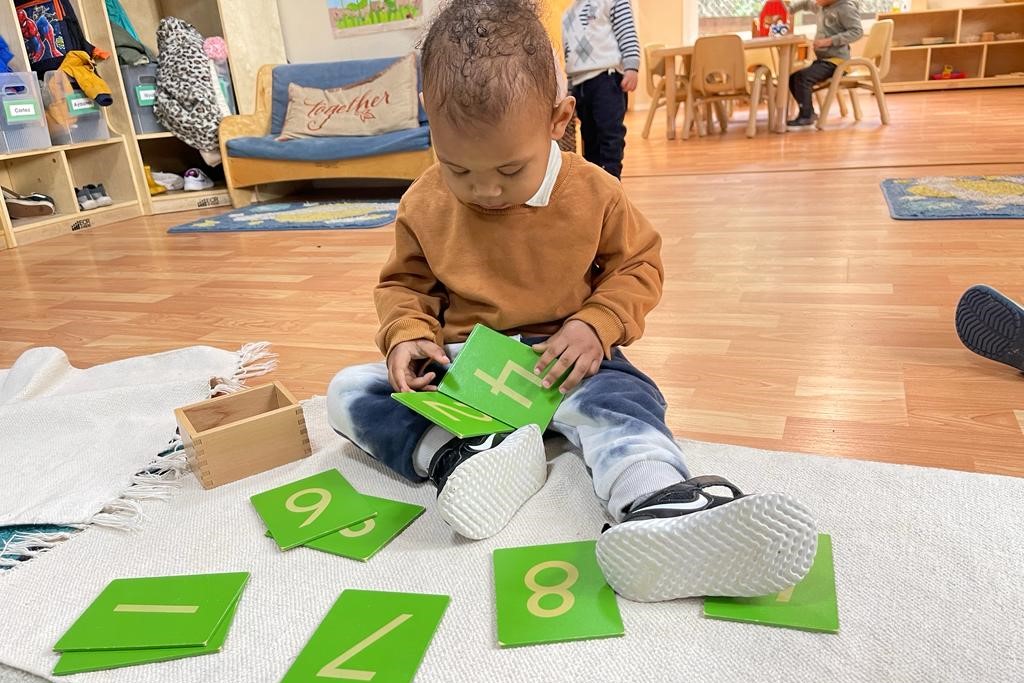
Mathematics
Every child is born with a mathematical mind. Children learn through observation. They can recognize their moms from other people. They can distinguish different voices. They can choose from different toys based on their qualities. Our Math learning center helps children develop their mathematical thinking skills with hands-on materials that are fun, interesting, and educational. Since they are little, they classify, sort, and categorize.
Children see numbers everywhere, and our materials are great tools for understanding them.
Examples of math activities are: Matching objects, matching pictures, playing with geometrical shapes, assembling simple puzzles, matching numbers, distinguishing the same from different, and looking at the sequence of events.
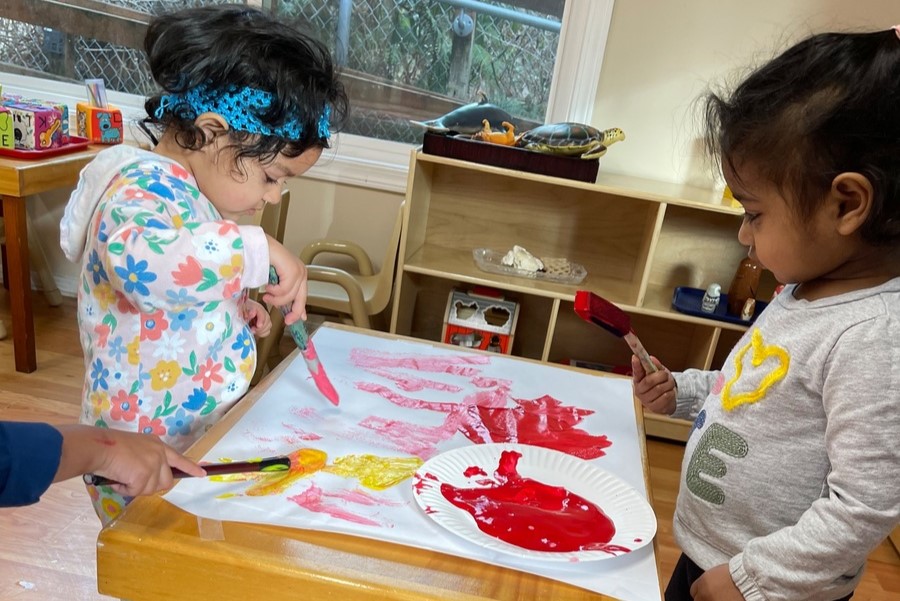
Art
Our art learning center is designed to foster creativity, wonder, and self-expression, and at the same time, it develops the child's fine motor skills and eye-hand coordination. After finishing an artwork, children have a sense of accomplishment, and sharing the work with parents strengthens their self-esteem.
Examples of Art activities are: Stamping, brush painting, finger painting, sculpting with play dough, coloring, and gluing.
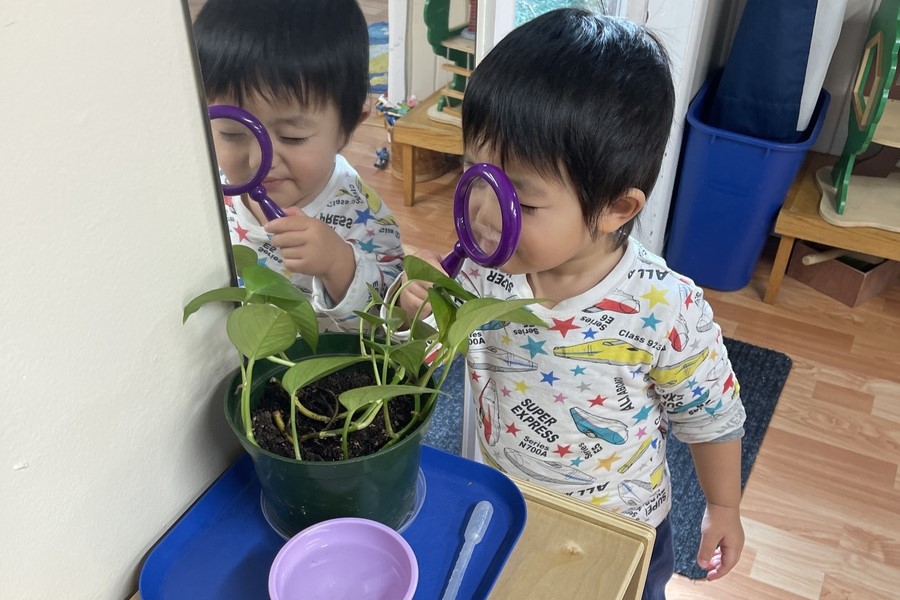
Science
Toddlers love science, and if presented in a fun, fascinating way, they will love it even more. Our science learning center has a variety of hands-on materials where the child can explore, learn, and see the world with wonder and in a new and different way.
Examples of science activities: Using magnets, using a magnifying glass, sinks or floats, seeds and germination, animal life, bubbles, and mixing colors.
